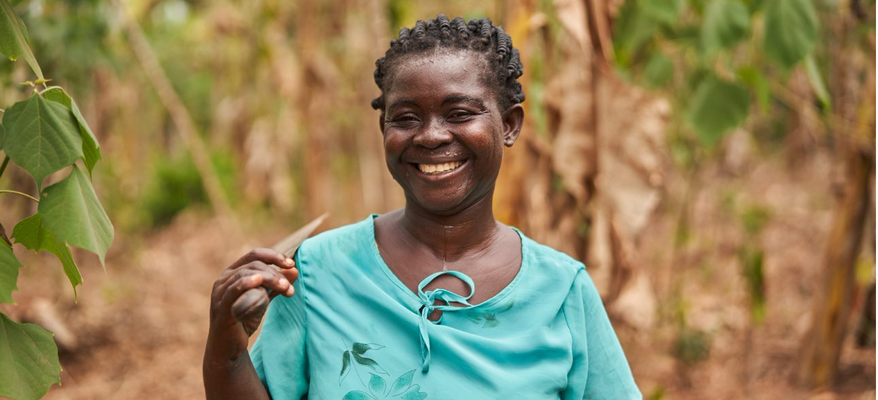Perspectives is a series that highlights emerging issues in agri-SME finance from the perspective of practitioners and thought leaders within and outside the SAFIN network. In this interview, Yossef Zahar, a Stockholm Environment Institute Affiliated Researcher and entrepreneur, speaks about how climate finance can be used to unlock opportunities to “build back greener” in agriculture in the context of the COVID-19 pandemic, the role of local financial intermediaries in channeling finance to “green” food and agriculture, and the need to mainstream this agenda in the agricultural finance ecosystem.
As an Affiliated Researcher with the Stockholm Environment Institute, I focus on catalyzing private sector international climate finance for rural communities in developing countries in Asia and the Pacific, to support small-scale adaptation and mitigation strategies for resilient growth. Together with partners, we are looking at practical ways in which international climate finance can make its way through financial institutions to reach end-borrowers such as smallholders, communities, and MSMEs, while safeguarding gender and social equity.
A consensus is mounting across the board that building back needs to be green. In particular, this should be the case for developing Asian rural communities, who are amongst the most vulnerable to climate change and require resilient growth agriculture practices, covering both adaptation and mitigation. The extent of asset depletion due to COVID-19 is not yet clear, and the ability of smallholders and agri-SMEs to commit to this agenda in the short run may be limited. In addition, government resources in developing Asia are now even more limited with budget pressures as they respond to COVID-19, including first line government support to the health sector and the official sectors suffering from unemployment and other implications of the pandemic. Building back greener in the agricultural sector requires private sector finance on a large scale, which can be catalyzed either through government or through private donor co-financing.
Financial intermediaries have a key role to play for several reasons. Mostly through smaller financial service providers, there can be good access to smallholders, MSMEs and the most vulnerable to climate change in rural areas. Financial institutions’ credit and other risks are measurable and quantifiable, unlike risks affecting many of their end borrowers, allowing them to attract private international and local climate finance at scale. New lending programmes need to be supported through an enabling regulatory environment, embedding thinking about climate risks and opportunities in the financial sector as well as dedicated tools such as local guarantee schemes in collaboration with local governments and foundations, allowing institutions to take up substantially more risks in lending to the agri-sector to transition to the green. Being ‘on the ground’ and understanding first-hand the challenges affecting operators in the sector allows financial intermediaries to be closely involved in designing the solutions and looking for new ways of doing business. Technical assistance efforts directed at intermediaries, therefore, should encourage the active and long- term participation of these institutions in finding solutions for “building back greener”, providing a clear outline of the benefits of this approach and also tangible incentives to management teams and shareholders.
Financing for a green transition in the agricultural sector can benefit from tapping the financial depth and liquidity of capital markets. However, the risk-return proposition for international institutional investors often discourages their participation. Therefore, it is imperative to design financing mechanisms while allowing private sector leadership, something that we have not seen much of yet.
Otherwise, green technology advances in the agri-field are becoming very popular for smart funds, which is indicative of the vast opportunity ahead. New, reliable products and services, should become a driving force for regional scale-up which then needs to be supported by climate finance schemes, making the risk/return equation work for investors due to scale and geography risk spreading.
Yossef is an Affiliated Researcher for Stockholm Environment Institute (SEI); he is leading the climate finance strategy and implementation for Asia Pacific. In this capacity, he has been working on the development of innovative, regional, green financial structures, integrating blended finance, to support the transition of rural and vulnerable communities to sustainable, green practices.

